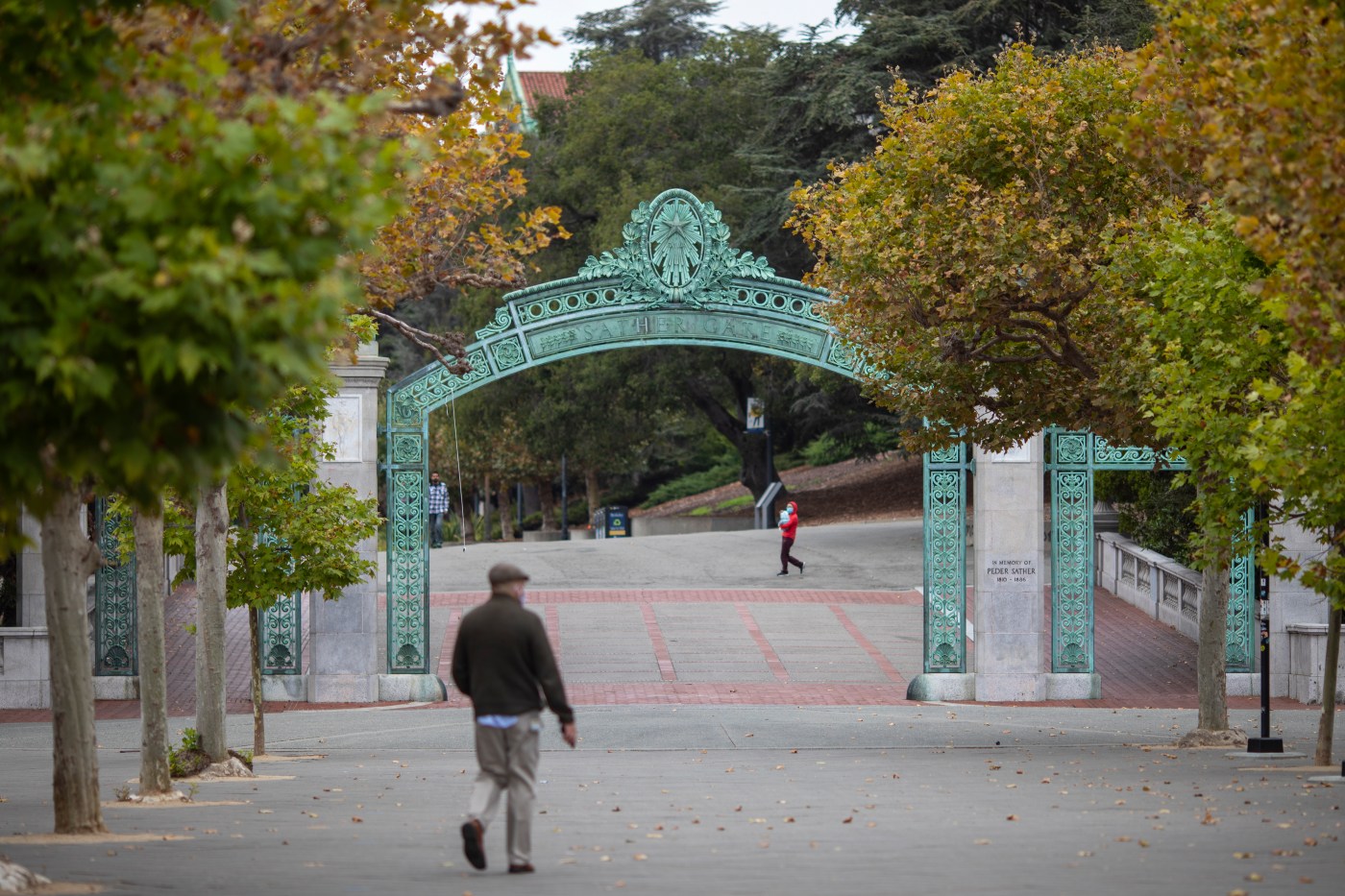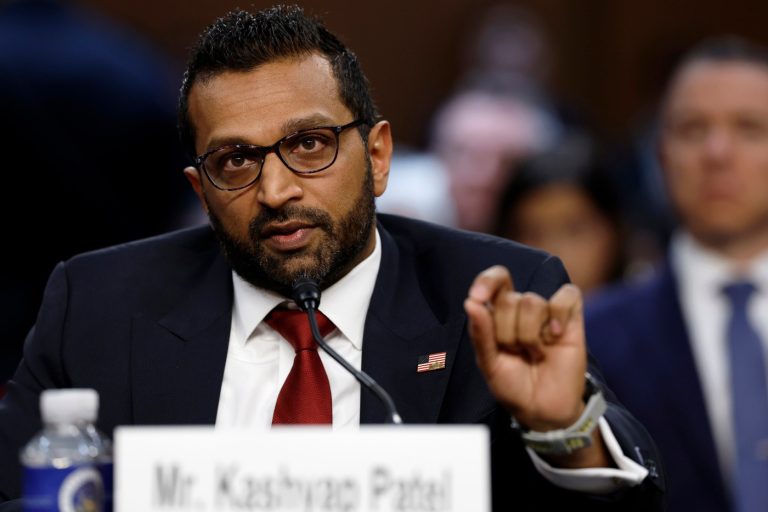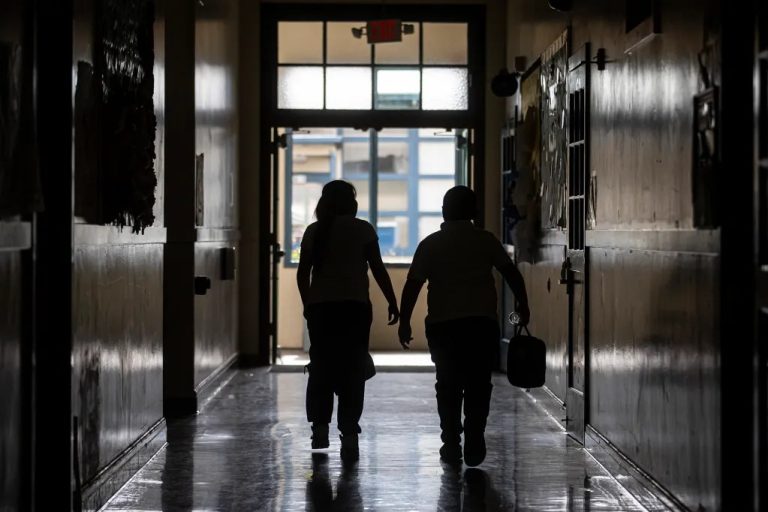Schools and colleges have until the end of the month to dismantle diversity programs and practices or risk losing federal funding, the U.S. Department of Education warned in a memo Friday.
The warning has left the University of California and California State University systems, along with schools across the state, scrambling to understand the scope of the memo and its impact on their campuses.
The “dear colleague” letter from the department’s civil rights division comes as President Donald Trump has vowed to crack down on diversity, equity and inclusion programs across the country. On his first day in office, Trump signed an executive order ending such programs, which he declared discriminatory and divisive, within the federal government. And Monday, the Trump administration announced over $600 million in cuts to grants used to train teachers on curriculum surrounding critical race theory, diversity, equity and inclusion, racial bias and oppression.
Friday’s memo reflects a change in the federal government’s interpretation of anti-discrimination laws. The memo argues that the 2023 Supreme Court decision to ban schools’ use of race in admissions decisions applies more broadly to include a wide range of programs and actions, such as scholarships, financial aid and other aspects of student, academic and campus life. Graduation ceremonies for particular affinity groups and residence halls for historically underrepresented groups are also prohibited under the administration’s interpretation of the court ruling.
“In a shameful echo of a darker period in this country’s history, many American schools and universities even encourage segregation by race at graduation ceremonies and in dormitories and other facilities,” the letter said.
Residence hall programs such as UC Berkeley’s African American, Asian American or Native American living communities, or optional affinity graduation ceremonies such as San Jose State’s “black graduation,” “Chicano commencement” or “Native American Indigenous graduation” are some examples of programs that might be impacted by the new guidance.
The letter said the department will “vigorously enforce the law” and gives all preschools, K-12 schools, higher education institutions and state agencies that receive federal funding two weeks to comply or face losing money.
But while the memo said it sought to “clarify and reaffirm” the federal nondiscrimination policy, school leaders were left confused about the revamped enforcement policy.
“As this type of action is unprecedented, we are consulting with the California Attorney General and higher education partners across the country to better understand the statewide impact of this letter,” the California State University said in a statement Tuesday.
The University of California Office of the President said the university system does not use race-based preferences in compliance with California’s Proposition 209, which was approved by voters in 1996 and prohibits all public state universities from using race in admissions, hiring or other practices. The university did not comment about any campus affinity clubs or programs that could be impacted.
Stanford University and Santa Clara University, private universities exempt from Prop 209, were prohibited from using affirmative action in admissions policies under the 2023 Supreme Court ruling.
Stanford University and Santa Clara University did not immediately respond to this news organization’s request for comment.
Peter McDonough, vice president and general counsel for the Washington, D.C.-based higher education nonprofit American Council of Education, said it’s important to remember that Friday’s “dear colleague” letter is guidance, not law.
“It’s basically a threat and it’s a threat of, frankly, overreach in my opinion, regarding interpretation of the law,” McDonough said. “So that is worrisome, but the law today is the exact same as it was last Thursday before they issued that dear colleague letter.”
McDonough said the memo serves more as a policy communication rather than legal guidance, as there is no existing precedent that says all practices involving diversity are categorically unlawful. But he said that while it’s too soon to tell what potential impacts this could have on schools and programs, the threat to federal funding is the biggest concern, and schools may not have the financial resources to challenge a loss of funding in court.
“It’s the threat that’s the big deal here,” he said.
California received about $8 billion in federal funding for K-12 education and about $7 billion in federal funding for higher education in 2024. That money supports a wide range of programs and grants, as well as provides financial aid for low-income college students.
Related Articles
Trump gives schools a deadline to end DEI programs
Hundreds of heating complaints reveal how controversial $50 million energy savings project has left East Bay schools in the cold
Saratoga takes steps toward traffic safety near local schools
‘Stay vigilant’: East Bay schools prepare for ‘unlikely’ ICE raids
Police arrest San Jose teacher suspected of sexually assaulting student
McDonough said he wasn’t aware of any current or anticipated litigation against the Department of Education over the new interpretation of the law, but schools may be waiting until the department begins enforcing the new guidelines.
The Trump administration is currently facing more than 40 lawsuits over controversial executive orders — with California often taking the lead. California’s Department of Justice has already sued the Trump administration over President Donald Trump’s efforts to end birthright citizenship and freeze trillions in federal funding.
But some policymakers and education leaders praised the Department of Education’s memo, calling it an “overdue step” and a “huge win.”
“The DEI programs that have infiltrated our educational systems have failed to live up to their mantra of diversity, equity and inclusion,” said Terry Schilling, president of the Virginia-based conservative think tank American Principles Project. “Instead they have fostered division, twisted the truth and even, in some cases, promoted segregation. Schools should focus on reading, writing and math instead of teaching students to hate our country and each other.”












